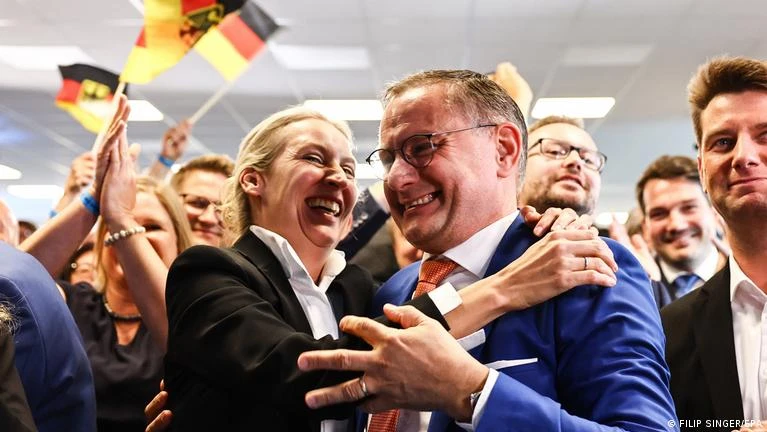Nordics against the current as far-right loses ground

Stay tuned with 24 News HD Android App

Left-wing parties across the Nordics gained ground in the EU election, going against the trend of right-wing advances across Europe, with experts saying Monday that right-wing issues were lower on voters' agenda.
Centrist mainstream parties kept an overall majority in the European Parliament, but extreme-right parties scored several high-profile wins in the bloc.
They finished first in France, Italy and Austria and came second in Germany and the Netherlands, according to preliminary results.
But in Sweden and Finland the trend was the reverse.
In Sweden, the anti-immigration Sweden Democrats, which props up Ulf Kristersson's centre-right government, made history by losing ground in an election for the first time since its founding in the late 1980s.
"It's spectacular that the spell has been broken," Henrik Ekengren Oscarsson, professor of political science at Gothenburg University, told AFP.
The Sweden Democrats became the country's second-largest party behind the Social Democrats in Sweden's 2022 general election.
Fight about agenda
It was hoping to repeat this feat in Sunday's EU election but instead up in fourth place with 13.2 percent of the votes, down 2.1 percentage points from the 2019 election, with over 90 percent of votes counted.
Oscarsson said that issues that normally favour the Sweden Democrats, such as migration, were not in focus in Sweden's EU election campaign, giving way to climate and the war in Ukraine.
"Modern political campaigns are very much a fight about the agenda, and the Sweden Democrats lost that fight," the researcher said.
Instead, the Green Party made gains and emerged as the country's third largest with 13.8 percent of the vote, an increase of 2.3 percentage points compared to the 2019 election.
The Left Party also saw a boost of 4.2 percentage points, reaching 11 percent.
In Finland, opinion polls had predicted the far-right Finns Party becoming the third biggest party with 16.5 percent of the vote.
Instead, the party ended up with only 7.6 percent of the vote.
"There was a quite steady trend in opinion polls for the populist Finns Party before the elections... and nothing was indicating that there would be such a dramatic loss in voter support on election day," Kimmo Elo, a senior research fellow at the University of Turku, told AFP.
Elo noted that the Finns Party had been struggling "to mobilise their voters in the European elections."
The big surprise in Finland was the socialist Left Alliance, which got 17.3 percent of the vote -- an increase of 10.4 percentage points.
'Ideological winds'
Denmark's Green Left, also known as the Socialist People's Party (SF), also surprised, becoming the largest party with 17.4 percent of the vote, up 4.2 percentage points compared to the 2019 result.
The anti-immigration Danish People's Party and recently-founded Denmark Democrats managed to each grab one of Denmark's 15 seats in the European parliament, with 6.4 and 7.4 percent of the vote respectively.
While this represented an increase of one seat for Denmark's far-right, the Danish People's Party got four of the seats in 2014.
Christine Nissen, chief analyst at the think-tank Europa, said that across the Nordics there was more agreement on having stricter migration laws.
This can help explain why the Nordics saw different results to the rest of Europe.
"If you look at the most important issues for voters, it's always security, then climate," Nissen told a press briefing for foreign media.
That was "not the case in some of the countries that have seen this surge in far-right parties, where it's more issues such as migration that are important to voters."
Oscarsson stressed that it was often difficult to pinpoint exactly why "ideological winds" were blowing in different directions across Europe.
He noted that there are no "Europe-wide political campaigns."
"Elections campaigns look very different in the 27 countries," Oscarsson said.
